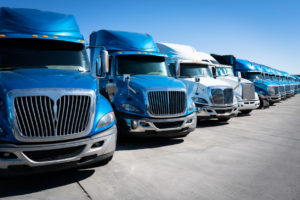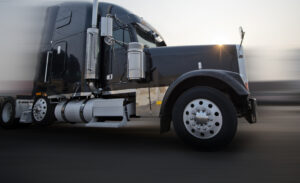What are Georgia’s Basic Car and Trucking Insurance Requirements?
For trucks that drive only in Georgia and do not cross state lines but weigh more than 10,000 pounds, Georgia requires minimum insurance in the amount of at least $100,000.00 per person and $300,000.00 per accident. Commercial vehicles carrying more than 12 passengers must have an insurance limit of $500,000.00 or more. On the other hand, Georgia only requires private automobiles and pickup trucks to carry liability insurance of $25,000.00 per person and $50,000.00 per accident. Our experienced Atlanta trucking and car accident lawyers can answer your questions regarding how trucking insurance could impact your case.
What Claims Do Georgia Trucking Insurance Policies Cover?
While Georgia trucking policies cover a lot of the same things as traditional car and pick-up truck insurance, there are some important differences.
- Trucking liability insurance policies cover bodily injury or property damage caused by the trucker him or herself or the company.
- Cargo insurance policies may cover the truck’s cargo that happens to become damaged during transport.
- Comprehensive trucking insurance covers damage due to non-collision events, such as fires, theft or acts of nature.
- Bobtail Insurance is an insurance policy or rider that covers trucks or tractors without trailers.
- Non-trucking liability policies or terms may cover a truck driver or trucking company when the truck is being used or driven outside of traditional hauling or work.
What Are Some Key Differences Between Private Car Insurance and Truck Insurance?
Due to the size and weight of trucks and the specialized nature of the business, trucking policies are usually much larger than regular automobile insurance policies and cover business operations of truckers and their companies. On the other hand, regular car insurance policies often have exclusions and do not cover a vehicle that is being used for a business or commercial purpose.
In Georgia Why Are You Allowed Sue A Trucking Insurance Company ?
Georgia has one of the most favorable laws in the US when it comes to bringing legal action against a trucking insurance carrier. Georgia public policy favors protection of the public over protecting the insurers of negligent truckers or trucking companies. This is entirely different from cases involving automobile insurance companies, where the law in Georgia does not generally allow you to name a car insurance company in an auto accident suit against a private individual.
Georgia’s Direct Action Statutes, OCGA 40-2-140 and OCGA 40-1-112, allow you, as the inured party, in some cases to name the primary or first-level motor carrier insurer as an additional defendant in a lawsuit against the trucker and trucking company. This can provide a significant benefit in Court, as Jurors may be less worried about issuing a fair verdict when it is fully understood that the accident is an insured event and that their verdict will not bankrupt a small mom-and-pop trucking company.
How Large is The Typical Georgia Trucking Insurance Policy?
Because the minimum limits are often not enough to protect a trucker and trucking company, trucking insurance policies in Georgia are usually at least $750,000.00, but this figure is not guaranteed, and can vary. The State of Georgia recommends that intrastate trucks hauling freight have $750,000 in liability coverage, trucks hauling oil products have $1,000,000 in liability insurance, and trucks handling hazardous materials (Hazmat) to have at least $5,000,000.00 in coverage.
How Does Federal Law Control Trucking Insurance?
Many aspects of interstate commercial trucking insurance are regulated by the Federal Government through the United States Department of Transportation. For example, under the Federal Regulations, an individual who wishes to have a commercial truck insurance policy must be at least twenty-three years of age and cannot have more than three moving violations within the previous three years.
Under the FMCSA all interstate motor carriers must meet certain commercial or trucking insurance requirements. Federal Regulations require interstate carriers of non-hazardous materials to have at least $750,000.00 of liability insurance coverage or a bond of surety in at least this amount. Federal law requires interstate trucks hauling oil products to carry at least $1,000,000.00 in coverage and other hazardous materials (such as explosives or toxic material) to carry at least $5,000,000.00 in liability insurance.
Additionally, Federal Regulations require interstate trucks to carry an MCS-90 Endorsement, which is an addendum to the existing liability insurance policy stating that the insurance company must pay any Judgment against the company up to $750,000.00. The MCS-90 endorsement exists to protect members of the public from insurance company policy defenses, such as the company’s failure to list a driver or a truck on the insurance policy, that might otherwise result in the accident being uninsured.

 1201 West Peachtree Street #2339 Atlanta, GA 30309+1-770-212-3795$0-$100000
1201 West Peachtree Street #2339 Atlanta, GA 30309+1-770-212-3795$0-$100000The Millar Law Firm is such a great and knowledgeable firm. The staff is extremely patient and helpful. This firm puts their clients first. Highly recommend!

In a Georgia Truck Accident Case, What Other Types Insurance May Exist?
Primary Trucking Insurance Policies or MCS-90 Endorsements provide a first layer of coverage for most truck accident cases. Some truckers or companies may have excess or umbrella policies providing several million dollars of additional coverage. When putting a trucking company on notice of a claim, the victim should always request all extra layers of coverage in addition to the primary layer.
In some tractor-trailer accident cases, the trailer may be insured separate from or in addition to the tractor or cab portion of the truck. Additionally, even if the cab and the trailer are covered under the same insurance policy, there may be individual limits that can be added together to create additional coverage. For these reasons, it is important to review the trailer policy to see if more insurance exists.
Other insurance that may exist can include Bobtail policies (see above), which is insurance that covers the cab when the tractor is not in use or pulling a trailer. It is not uncommon for truckers to leave their trailer to be loaded while going to eat or sleep in another location in the tractor. Should the trucker get into an accident when away from the trailer, do not let the trucking company or its insurer tell you that there is no coverage because the trucker was “off-duty,” be sure to ask about the existence of any bobtail policy that may provide coverage.














